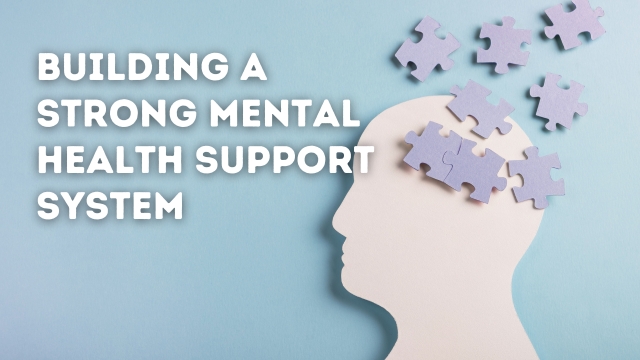Mental health is as important as physical health. However, many people struggle with mental health issues and often feel alone. Building a strong support system can make a significant difference. This article will guide you in creating a mental health support system to help you or someone you care about.
Understanding the Importance of Support
A support system consists of people who provide emotional, practical, and sometimes financial help. Having supportive friends, family, or professionals can improve your mental well-being. They can listen to you, offer advice, or be there when you need someone to talk to. Research shows that social connections can reduce feelings of loneliness and anxiety. Support systems can help you cope better during tough times. Remember, no one should have to face challenges alone.
Identifying Your Needs
Before building your support system, it’s essential to understand your needs. Ask yourself a few questions:
- What kind of support do I need? (emotional, practical, informational)
- Who makes me feel safe and understood?
- What activities help me feel better?
Finding Your Support Network
Family and Friends
Start with those closest to you. Family members and friends can be your first line of support. Share your feelings with them and let them know how they can help. Even a simple chat over coffee can provide comfort.
Professional Help
Sometimes, you need more than friends and family can provide. Mental health professionals, such as therapists and counsellors, offer specialized support. They can help you develop coping strategies and provide a safe space to express your feelings.
Online Communities
The internet can be a great resource for support. Many online forums and social media groups focus on mental health. These platforms allow you to connect with others, share experiences, and find encouragement from people who understand your struggles.
Building Strong Connections
Once you have identified potential members for your support system, it’s time to build those connections. Here are some tips:
- Be Open and Honest
Share your thoughts and feelings with your support network. Being open about what you’re going through helps others better understand how to support you. - Set Boundaries
While being open is essential, setting boundaries is crucial. Let your support system know what topics are off-limits or what you’re not ready to discuss. This helps maintain healthy relationships. - Reciprocate Support
A support system is a two-way street. Be there for your friends and family as they are for you. Listen to their problems and offer support when needed. Building mutual trust strengthens your connections. - Stay Engaged
Make an effort to stay connected with your support network. Regular check-ins, whether through phone calls, texts, or in-person meetings, help maintain those relationships.
Utilizing Professional Resources
In addition to your support system, don’t hesitate to use professional resources:
- Therapists and Counselors: They can provide specialized help tailored to your needs.
- Helplines: Many organizations offer helplines for immediate support. These can be valuable when you need someone to talk to right away.
- Workshops and Seminars: Look for local or online workshops on mental health topics. These can provide valuable tools and strategies for coping.
Coping Strategies to Share
Sometimes, the best support comes from sharing coping strategies. Here are a few techniques you can share with your support network:
- Mindfulness and Meditation: Practicing mindfulness can help calm your mind. Encourage your support system to try meditation or deep-breathing exercises.
- Physical Activity: Exercise is a great way to boost your mood. Whether it’s a walk in the park or a yoga class, encourage your network to stay active.
- Journaling: Writing down your thoughts can provide clarity. Suggest journaling as a way to express emotions and reflect on experiences.
- Creative Outlets: Art, music, or crafting can be therapeutic. Encourage creativity as a means of coping and self-expression.
Knowing When to Seek Help
It’s important to recognize when you or someone in your support system may need more help. Here are some signs to look for:
- Persistent feelings of sadness or hopelessness
- Changes in appetite or sleep patterns
- Withdrawal from social activities
- Difficulty concentrating or making decisions
- Expressing thoughts of self-harm or suicide
Be open, honest, and nurturing in your connections. Encourage mutual support and share coping strategies. Most importantly, don’t hesitate to seek professional help when needed. Together, we can foster an environment that promotes mental well-being for ourselves and others. You are not alone on this journey—support is out there, and it’s okay to reach out.







